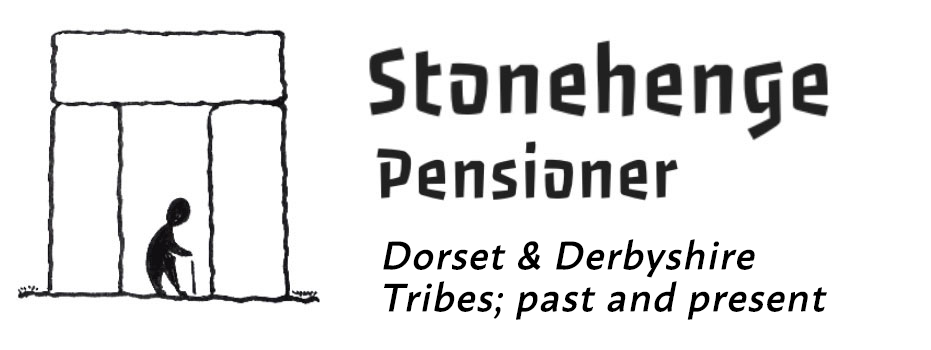Religious Prejudice Against Pagans
The book ‘Early Pennine Settlement’ cost me 50p at Stourpaine fete, but I am a sucker for anything about prehistory. Sadly, reading it made me realise why our predecessors had such a bad press, that religious prejudice against pagans was endemic. This small book tried to do for the Pennines in 1970 what ‘My Pagan Ancestor Zuri’ hopes to do for Avonlands in 2019; that is to bring alive these early people, to understand what life was like. What shocked me was how attitudes have changed in almost 50 years since the book was written.
Early in the book reference is made to the finding of disarticulated bodies as possible evidence of cannibalism. In truth, it should have said disarticulated skeletons, not bodies, but can you sense how that word cannibalism has immediately influenced how you feel about the past. The word is loaded with brutish overtones. A few pages later this author refers to the Pennine people as ‘backward communities’ and as ‘ignorant’. By the time this academic author reaches the Celtic period, the word ‘barbarian’ has been used as well as the fact that they live in ‘rude’ huts.
Religious Prejudice Against Pagans
The author reflects his own time, putting his values onto the past. The fact that this attitude was endemic 50 years ago highlights the same dangers today, that of writing about the past whilst prejudiced by the present. Is academia still dominated by the middle and upper classes? If so, perhaps writers on prehistory should come from the lower orders; those who have known poverty and hardship, those who can empathise with the early pagans.
The author on the Pennines saw evidence of their rude huts whilst aware that the Egyptians had metal and were using chariots and carving great statues at that time. The people here, of course, did not know that, nor that the Egyptians had experienced a long period of development unhindered by the hardships of an Ice Age. No doubt, sitting in a warm hut in front of a peat fire, they felt they were the peak civilisation. Those of the tribe who had visited Stonehenge and experienced the sophistication of Dorset might have felt differently, of course.
That word cannibalism was probably used because such practices were emblematic of non Christian societies; that the use of the word sets a barrier, that they are not related to us. But what if the accusation was true? Would eating part of our kinfolk or enemies be so bad? Where we know that cannibalism was practised, it was supported through ancient rituals that suggested the gods favoured you eating ‘courage’, ‘knowledge’ or other qualities of the dead person. Otherwise, and much worse, that such qualities might be lost to the tribe if they were not consumed. For people living in a harsh environment, that might have made a huge difference.
The Value of Bones
The fact is that in Britain, disarticulated old bones, that is bones turning up on their own and without the rest of the skeleton, is relatively commonplace. As only the larger bones survive, it could suggest that they held the flesh that somebody had eaten. Taking another view, in recent decades, a growing number of archaeologists see these bones as evidence of specific beliefs; that to obtain and venerate the bones they had to dispose of their dead bodies in a particular way.
Sky burial is an evocative word, yet ill defined. In Tibet the entire body is smashed up (is that too strong a word?) This is to enable the vultures, whom they call angels, to eat the bones. What if you prefer to retain the bones, or at least some of them? That, it appears, is what people in Britannia wanted to do. We know that bones, not bodies, went into the previously used chambered tombs. The bones were used in ceremonies, or perhaps placed over hut doorways or on hut walls. The presence of a bone kept the deceased in the world of the living. It could be a talisman or might even have been spoken to and used as a portal into the spiritual world. This would explain why such bones now appear disarticulated.
Sky Towers
To obtain the bones they displayed the dead on sky towers, where the birds pecked away the fat and protein. The people saw the birds as releasing the spirit. After a few days, the people recovered the earthly bones that they desired. This process is called excarnation. In my forthcoming book ‘My Pagan Ancestor Zuri’ it forms an integral part of her story.
Perhaps the lesson here is that judgement on early people requires a variety of skills. Religious prejudice could be a serious flaw in a researcher. Assessing artefacts without reference to culture, including belief patterns as well as social and political issues at the time, makes no sense. It’s rather like the Brexit scenario. What appeared a relatively simple decision is now a very complex creature built up of ignorant assumptions and half truths. What will those looking back, with hindsight, make of us?



